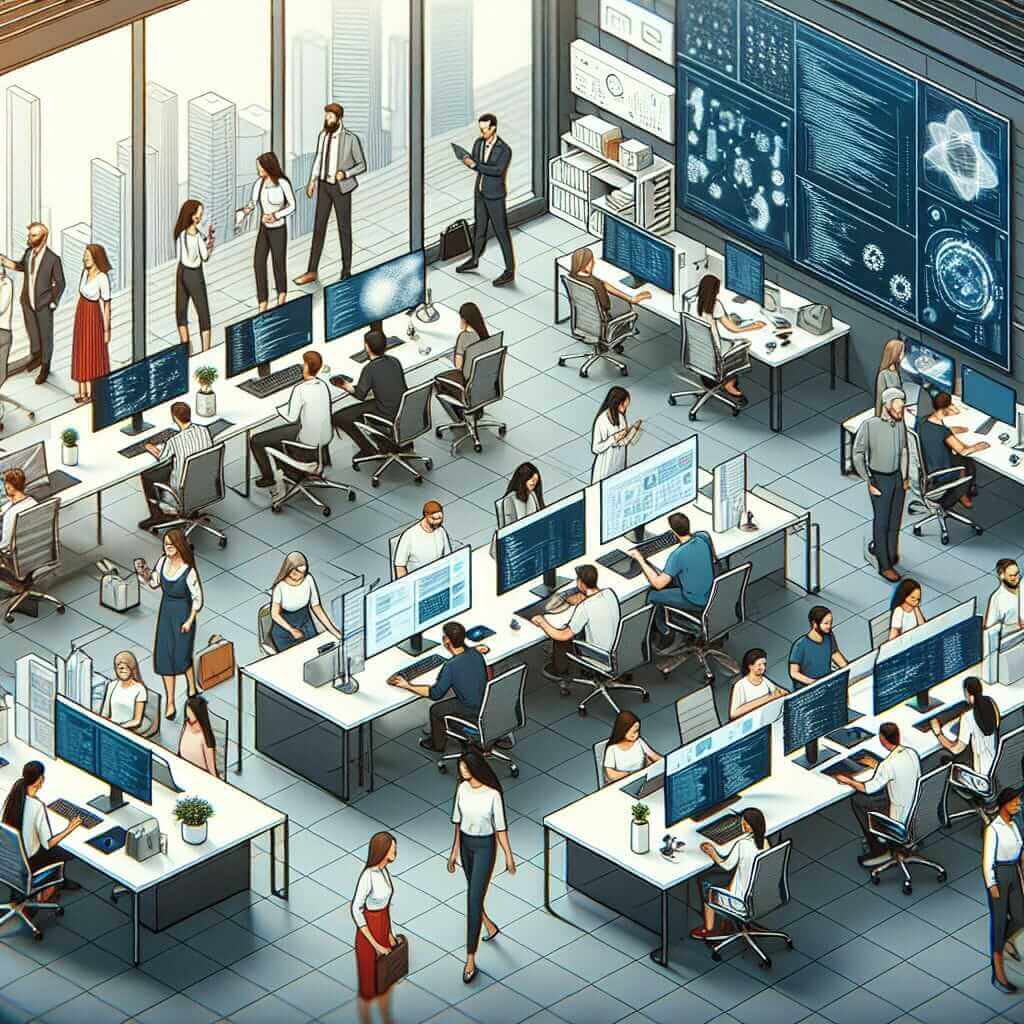Technological innovation has been a driving force behind societal and economic shifts for centuries. Its effects on employment, however, are often debated. This article explores how technological advancements impact jobs, providing insights and vocabulary to help you excel in your IELTS writing exam.
Nội dung bài viết
Understanding the Topic: Technological Innovation and Employment
This topic appears frequently in IELTS Writing Task 2, often under the “Technology” or “Society” categories. You might encounter questions like:
- To what extent do you agree or disagree that technological innovation leads to increased unemployment?
- Discuss the positive and negative effects of technological advancements on employment opportunities.
- What measures can governments and individuals take to address the employment challenges posed by rapid technological innovation?
Sample Essay: Analyzing the Dual Impact of Technology on Jobs
Let’s delve into a sample essay addressing the second question:
Discuss the positive and negative effects of technological advancements on employment opportunities.
Essay:
Technological progress has always been a double-edged sword, bringing both opportunities and challenges to the workforce. While it undeniably fuels economic growth and creates new employment avenues, it also disrupts traditional industries and displaces workers. This essay will explore both the positive and negative effects of technological advancements on employment opportunities.
On the one hand, technology empowers businesses to enhance productivity and expand into new markets. Automation, for instance, streamlines processes, reduces errors, and allows companies to produce goods and services more efficiently. This increased efficiency often translates into higher profits, enabling businesses to hire more employees in specialized roles such as software development, data analysis, and digital marketing. Moreover, the rise of e-commerce and the gig economy has created unprecedented opportunities for individuals to work remotely, set their own hours, and become self-employed.
On the other hand, technological advancements inevitably lead to job displacement in certain sectors. As machines and algorithms become more sophisticated, they are increasingly capable of performing tasks previously done by humans, particularly in manufacturing, agriculture, and customer service. This automation can result in unemployment, especially for low-skilled workers who may lack the necessary skills to adapt to the changing job market. Furthermore, the rapid pace of technological change requires workers to constantly update their skills and knowledge, putting pressure on individuals and educational institutions to keep up.
In conclusion, technological advancements have a multifaceted impact on employment opportunities, creating both new possibilities and significant challenges. While they drive economic growth and generate new jobs, they also displace workers in traditional industries. To mitigate the negative consequences, governments and individuals must invest in education and training programs that equip workers with the skills needed to thrive in a technologically driven economy.
Word count: 284 words

Writing Tips:
- Structure: Follow a clear structure (introduction, body paragraphs, conclusion) to present your arguments cohesively.
- Vocabulary: Use topic-specific vocabulary (e.g., automation, digitalization, artificial intelligence, gig economy) to demonstrate your language proficiency.
- Examples: Support your claims with relevant examples to strengthen your arguments.
- Grammar: Pay attention to grammar accuracy, especially verb tenses and subject-verb agreement.
Key Vocabulary:
- Automation (n.) /ˌɔː.təˈmeɪ.ʃən/: The use of machines and technology to do work that was previously done by people.
- Digitalization (n.) /ˌdɪdʒ.ɪ.təl.aɪˈzeɪ.ʃən/: The process of converting information into a digital format.
- Artificial Intelligence (AI) (n.) /ˌɑːr.tɪˈfɪʃ.əl ɪnˈtel.ɪ.dʒəns/: The theory and development of computer systems able to perform tasks that normally require human intelligence.
- Gig Economy (n.) /ˈɡɪɡ ɪˌkɒn.ə.mi/: A way of working that is based on people having temporary jobs or doing separate pieces of work, each paid separately.
- Job Displacement (n.) /ˈdʒɒb dɪsˌpleɪs.mənt/: The act of taking someone’s job and putting someone else in it.
- Upskilling (n.) /ˈʌpˌskɪl.ɪŋ/: The process of learning new skills or of teaching workers new skills.
- Technological Unemployment (n.) /ˌtek.nəˈlɒdʒ.ɪ.kəl ˌʌn.ɪmˈplɔɪ.mənt/: Unemployment caused by technological change.
- Adaptability (n.) /əˌdæp.təˈbɪl.ə.ti/: The quality of being able to adjust to new conditions.
- Workforce (n.) /ˈwɜːk.fɔːs/: All the people who work for a company or organization, or in a country.
- Innovation (n.) /ˌɪn.əˈveɪ.ʃən/: A new method, idea, product, etc.
Conclusion
Mastering the topic of technological innovation and employment is crucial for IELTS success. By understanding the nuances of the issue, employing relevant vocabulary, and practicing your writing skills, you can confidently tackle any essay question on this subject. Remember to explore related topics on the impact of automation on employment opportunities and the effects of technological advancements on employment to broaden your understanding.